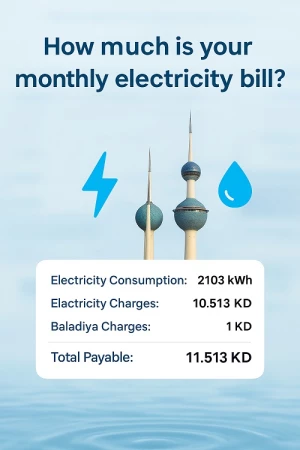Latest News
- Expats Alert: PACI Just Changed The Rules For Updating Your Addr...
- Best Pizza In Kuwait: Top Brands And What To Order
- Best Budget-Friendly Chalets & Villas In Kuwait For Weekend Geta...
- Why Electricity Bills Are Rising In Kuwait & Smart Ways Expats C...
- App Store Optimization: Why It’s Becoming A Core Part Of SEO Str...
- Best Shower Filters In Kuwait For Hair Fall And Skin Protection
- Exness Sets A New Standard Of Consistency In The Trading Industr...
- Instant Withdrawals In Trading – A Game Changer For Traders In K...
- Best Abaya Shop In Kuwait: Editorial Review Of Abay.com
- IPhone 17 In Kuwait: Prices, Colors, Specs & Where To Buy
- Best Drinking Water Filter For Home In Kuwait
- Avoid Common Qatar E-visa Application Mistakes. Learn The Top 5...
PAM Mandates Salary Transfer Proof For Workforce Expansion
In a recent administrative move, the Acting Director General of the Public Authority for Manpower (PAM), Marzouq Al-Otaibi, has issued a circular requiring companies to submit proof of salary transfers to local banks when applying for an increase in workforce quota beyond the approved needs assessment.
This directive is part of Kuwait's broader effort to reinforce compliance with labor laws, particularly those mandating timely salary payments, and to protect workers’ rights in the private sector.
Compliance with Labor Law and Wage Protection
According to sources close to the Authority, this measure is designed to enhance labor market regulation and minimize delays in the disbursement of wages and other entitlements. It aligns with the stipulations of Kuwait Labor Law, which obligates private companies to deposit employee salaries into local bank accounts within the first week of each month.
By making salary transfer proof a requirement for expanding labor capacity, the government seeks to ensure that employers maintain financial transparency and uphold their responsibilities toward workers listed on company records.
Reducing Worker Complaints and Strengthening Oversight
This move comes as part of an ongoing strategy to reduce the growing number of worker complaints related to delayed or unpaid wages. With the new rule in place, PAM aims to prevent companies from hiring additional staff without fulfilling existing employee obligations.
Employers who do not comply with the updated requirement may face delays in the approval of new work permits or labor quota increases. The government’s stance signals a zero-tolerance policy toward violations of wage payment regulations.
Economic Impact and Legal Obligations
By tying labor quota expansion to salary compliance, the Public Authority for Manpower is not only safeguarding worker rights but also promoting economic accountability among private sector businesses. Employers are reminded that maintaining accurate payroll records and adhering to wage transfer laws are not optional but legally binding.
Conclusion
The new administrative directive reflects Kuwait’s commitment to fostering a balanced and fair labor environment. Business owners aiming to scale their operations must now demonstrate financial integrity through documented salary bank transfers, reinforcing a culture of legal compliance and worker protection in the country.





